14 start with F start with F

The constant bombardment of the super-enlarged, computer-enhanced faces of advertising, the endless 'talking heads' of television and the ever-changing array of film stars' faces have reduced the face to a banal image, while the dream of early film theorists that the 'giant severed heads' of the screen could reveal 'the soul of man' to the masses is long since dead. And yet the end of this dream opens up the possibility for a different view of the face on the screen. The aim of the book is to seize this opportunity to rethink the facial close-up in terms other than subjectivity and identity by shifting the focus to questions of death and recognition.
In doing so, the book proposes a dialectical reversal or about-face. It suggests that we focus our attention on the places in contemporary media where the face becomes unrecognisable, for it is here that the facial close-up expresses the powers of death. Using Walter Benjamin's theory of the dialectical image as a critical tool, the book provides detailed studies of a wide range of media spectacles of faces becoming unrecognisable. It shows how the mode of recognition enabled by these faces is a shock experience that can open our eyes to the underside of the mask of self - the unrecognisable mortal face of self we spend our lives trying not to see. Turning on itself, so to speak, the face exposes the fragile relationship between social recognition and facial recognizability in the images-cultures of contemporary media.

"Groundbreaking in its approach and potentially wide in its appeal. . . . The rigor of the ideas, their dramatic nature, and the political drive of the rhetoric all should win Facing It a large readership that could extend far beyond students of narrative or queer theory." --David Bergman, Towson University, editor of Camp Grounds: Style and Homosexuality
Ross Chambers is Distinguished University Professor of French and Comparative Literature, University of Michigan, and author of Room for Maneuver: Reading (the) Oppositional (in) Narrative and Story and Situation: Narrative Seduction and the Power of Fiction.

"Groundbreaking in its approach and potentially wide in its appeal. . . . The rigor of the ideas, their dramatic nature, and the political drive of the rhetoric all should win Facing It a large readership that could extend far beyond students of narrative or queer theory." --David Bergman, Towson University, editor of Camp Grounds: Style and Homosexuality
Ross Chambers is Distinguished University Professor of French and Comparative Literature, University of Michigan, and author of Room for Maneuver: Reading (the) Oppositional (in) Narrative and Story and Situation: Narrative Seduction and the Power of Fiction.

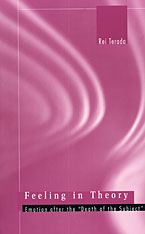
Because emotion is assumed to depend on subjectivity, the "death of the subject" described in recent years by theorists such as Derrida, de Man, and Deleuze would also seem to mean the death of feeling. This revolutionary work transforms the burgeoning interdisciplinary debate on emotion by suggesting, instead, a positive relation between the "death of the subject" and the very existence of emotion.
Reading the writings of Derrida and de Man--theorists often seen as emotionally contradictory and cold--Terada finds grounds for construing emotion as nonsubjective. This project offers fresh interpretations of deconstruction's most important texts, and of Continental and Anglo-American philosophers from Descartes to Deleuze and Dennett. At the same time, it revitalizes poststructuralist theory by deploying its methodologies in a new field, the philosophy of emotion, to reach a startling conclusion: if we really were subjects, we would have no emotions at all.
Engaging debates in philosophy, literary criticism, psychology, and cognitive science from a poststructuralist and deconstructive perspective, Terada's work is essential for the renewal of critical thought in our day.

A Few Months to Live describes what dying is like from the perspectives of nine terminally ill individuals and their caregivers. Documenting a unique study of end-of-life experiences that included detailed conversations in home care settings, the book focuses on how participants lived their daily lives, understood their illnesses, coped with symptoms-especially pain-and searched for meaning or spiritual growth in their final months of life. The accounts are presented largely in the participants' own words, illuminating both the medical and non-medical challenges that arose from the time each learned the "bad news" through their final days of life and memorial services.
Describing the nationwide crisis that surrounds end-of-life care, the authors contend that informal caregiving by relatives and close friends is an enormous and too-often invisible resource that deserves close and public attention. By incorporating not only the ill person's but also the family's perspective, they portray the nine participants in the contexts of their daily lives and relationships rather than simply as patients. Addressing such issues as palliative care, quality of life, financial hardship, grief and loss, and communications with medical personnel, the authors identify how families, professionals, and communities can respond to the challenges of terminal illness and the need to confront life's end.
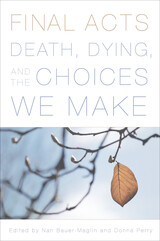
Contributors include patients, caretakers, physicians, journalists, lawyers, social workers, educators, hospital administrators, academics, psychologists, and a poet, and among them are ethicists, religious believers, and nonbelievers. Some write moving, personal accounts of "good" or 'bad" deaths; others examine the ethical, social, and political implications of slow dying. Essays consider death from natural causes, suicide, and aid-in-dying (assisted suicide).
Writing in a style free of technical jargon, the contributors discuss documents that should be prepared (health proxy, do-not-resuscitate order, living will, power of attorney); decision-making (over medical interventions, life support, hospice and palliative care, aid-in-dying, treatment location, speaking for those who can no longer express their will); and the roles played by religion, custom, family, friends, caretakers, money, the medical establishment, and the government.
For those who yearn for some measure of control over death, the essayists in Final Acts, from very different backgrounds and with different personal and professional experiences around death and dying, offer insight and hope.
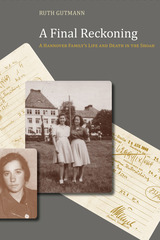
Ruth Herskovits Gutmann’s powerful memoir recounts her life not only as a concentration camp inmate and survivor, but also as a sister and daughter. Born in 1928, Gutmann and her twin sister, Eva, escaped the growing Nazi threat in Germany on a Kindertransport to Holland in 1939
.
Gutmann’s compelling story captures many facets of the Jewish experience in Nazi Germany. She describes her early life in Hannover as the daughter of a prominent and patriotic member of the Jewish community. Her flight on the Kindertransport offers a vivid, firsthand account of that effort to save the children of Jewish families. Her memories of the camps include coming to the attention of Josef Mengele, who often used twins in human experiments. Gutmann writes with moving clarity and nuance about the complex feelings of survivorship.
A Final Reckoning provides not only insights into Gutmann’s own experience as a child in the midst of the atrocities of the Holocaust, but also a window into the lives of those, like her father, who were forced to carry on and comply with the regime that would ultimately bring about their demise.
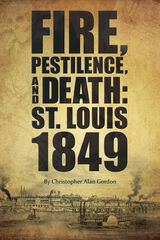

When the first field study of the Florida panther took place in 1973, so little was known about the animal that many scientists believed it was already extinct. During more extensive research conducted from 1981 to 1986, panthers were proven to exist, but the handful of senile, anemic, and parasite-infested specimens that were captured indicated a grim future. During those early years a remarkably enduring image of the panther was born, and despite voluminous data gathered over the next decade that showed the panther to be healthy, long-lived, and reproducing, that earlier image has yet to be dispelled.
For nine years, biologist David S. Maehr served as project leader of the Florida Panther Study Project, helping to gather much of the later, surprisingly positive data. In The Florida Panther, he presents the first detailed portrait of the animal -- its biology, natural history, and current status -- and a realistic assessment of its prospects for survival.
Maehr also provides an intriguing look at the life and work of a field biologist: how captures are made, the intricacies of radio-telemetry tracking, the roles of various team members. He describes the devastating intrusion of politics into scientific work, as he discusses the widespread problems caused by the failure of remote and ill-informed managers to provide needed support and to communicate effectively to the public the goals and accomplishments of the scientists. He examines controversial efforts to establish a captive breeding program and to manipulate the Florida panther's genetic stock with the introduction of relatives from west Texas.
Protection of high-quality habitat, much of it in the hands of private landowners, is the key to the long-term survival of the Florida panther. Unless agency decisionmakers and the public are aware of the panther's true situation, little can be done to save it. This book will play a vital role in correcting widespread misconceptions about the panther's current condition and threats to its survival.
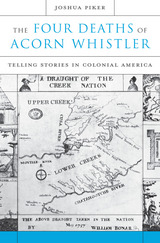
Who was Acorn Whistler, and why did he have to die? A deeply researched analysis of a bloody eighteenth-century conflict and its tangled aftermath, The Four Deaths of Acorn Whistler unearths competing accounts of the events surrounding the death of this Creek Indian. Told from the perspectives of a colonial governor, a Creek Nation military leader, local Native Americans, and British colonists, each story speaks to issues that transcend the condemned man’s fate: the collision of European and Native American cultures, the struggle of Indians to preserve traditional ways of life, and tensions within the British Empire as the American Revolution approached.
At the hand of his own nephew, Acorn Whistler was executed in the summer of 1752 for the crime of murdering five Cherokee men. War had just broken out between the Creeks and the Cherokees to the north. To the east, colonists in South Carolina and Georgia watched the growing conflict with alarm, while British imperial officials kept an eye on both the Indians’ war and the volatile politics of the colonists themselves. They all interpreted the single calamitous event of Acorn Whistler’s death through their own uncertainty about the future. Joshua Piker uses their diverging accounts to uncover the larger truth of an early America rife with violence and insecurity but also transformative possibility.
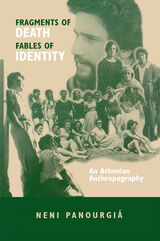
The death of her grandfather sets Neni Panourgiá and her readers on a path through the rituals of mourning and memory in modern urban Greece. Blending emotional richness and intellectual rigor, the anthropologist returns home in this exploration of kinship and identity within her own family and native city of Athens. What emerges is not only a new anthropological view of contemporary Greek culture, but also a reflective consideration of the self and subject.
Following men and women grappling with questions of mortality, Panourgiá moves through the streets and neighborhoods of Athens, seaside resorts and pistachio groves, the corridors and rooms of the Cancer Institute, wakes in apartments and observances in cemeteries. She mingles popular culture, venerable traditions, and contemporary theory as she considers how individuals define their identity as Athenians, as members of a family, as subjects of a polity, in sickness and in health, in death or in mourning. Memory is their guide as it negotiates their relationships with a personal, collective, and cultural past—and the memory of many deaths challenges and reaffirms, deconstructs and reconstructs who they are.
As intellectually ambitious as it is moving, Fragments of Death, Fables of Identity reconfigures the subject and object of anthropological study and recasts the line where experience ends and analysis begins.
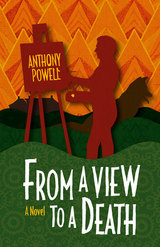
From a View to a Death takes us to a dilapidated country estate where an ambitious artist of questionable talent, a family of landed aristocrats wondering where the money has gone, and a secretly cross-dressing squire all commingle among the ruins.
Written from a vantage point both high and necessarily narrow, Powell’s early novels nevertheless deal in the universal themes that would become a substantial part of his oeuvre: pride, greed, and what makes people behave as they do. Filled with eccentric characters and piercing insights, Powell’s work is achingly hilarious, human, and true.
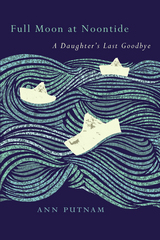
READERS
Browse our collection.
PUBLISHERS
See BiblioVault's publisher services.
STUDENT SERVICES
Files for college accessibility offices.
UChicago Accessibility Resources
home | accessibility | search | about | contact us
BiblioVault ® 2001 - 2024
The University of Chicago Press









